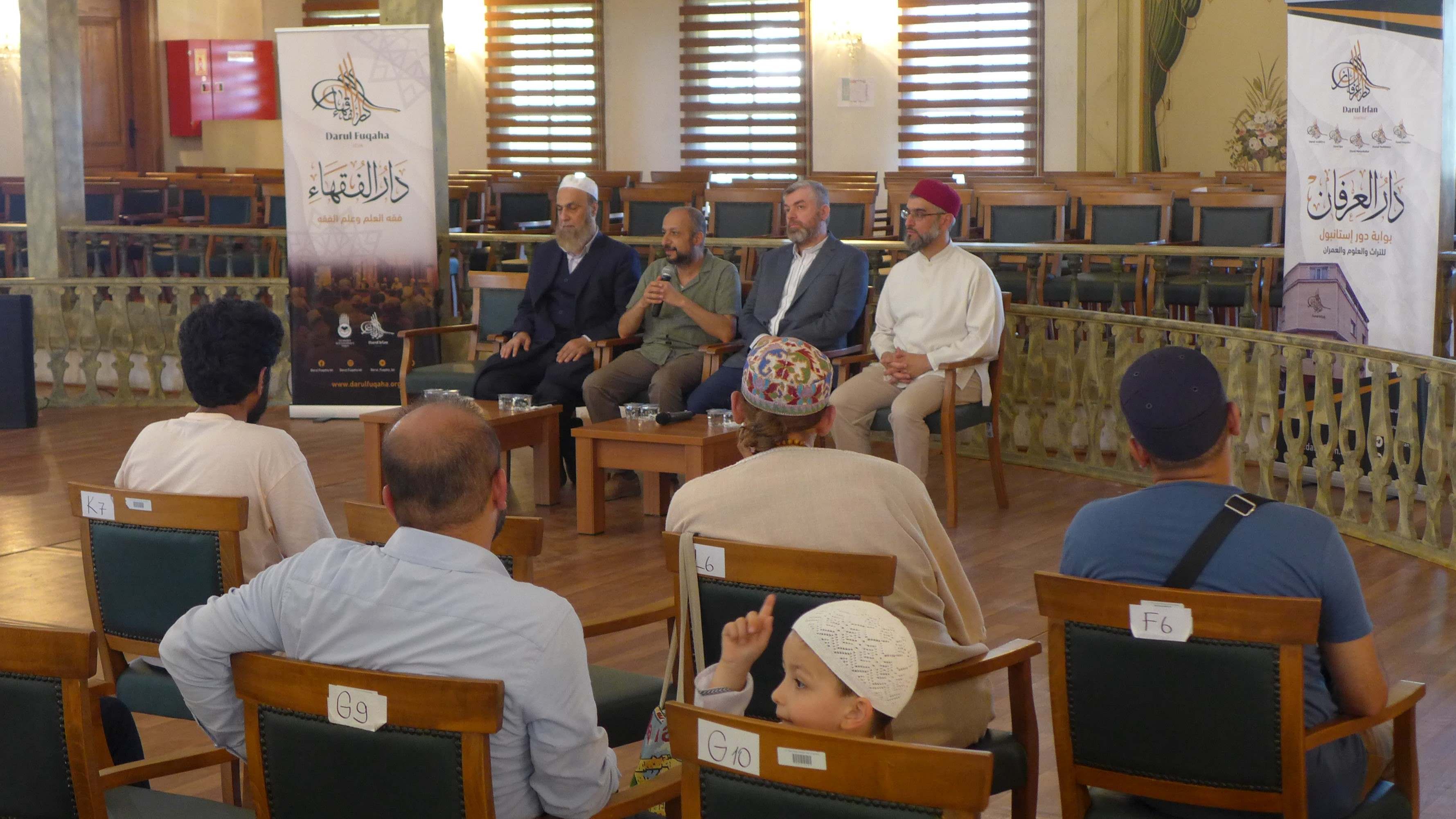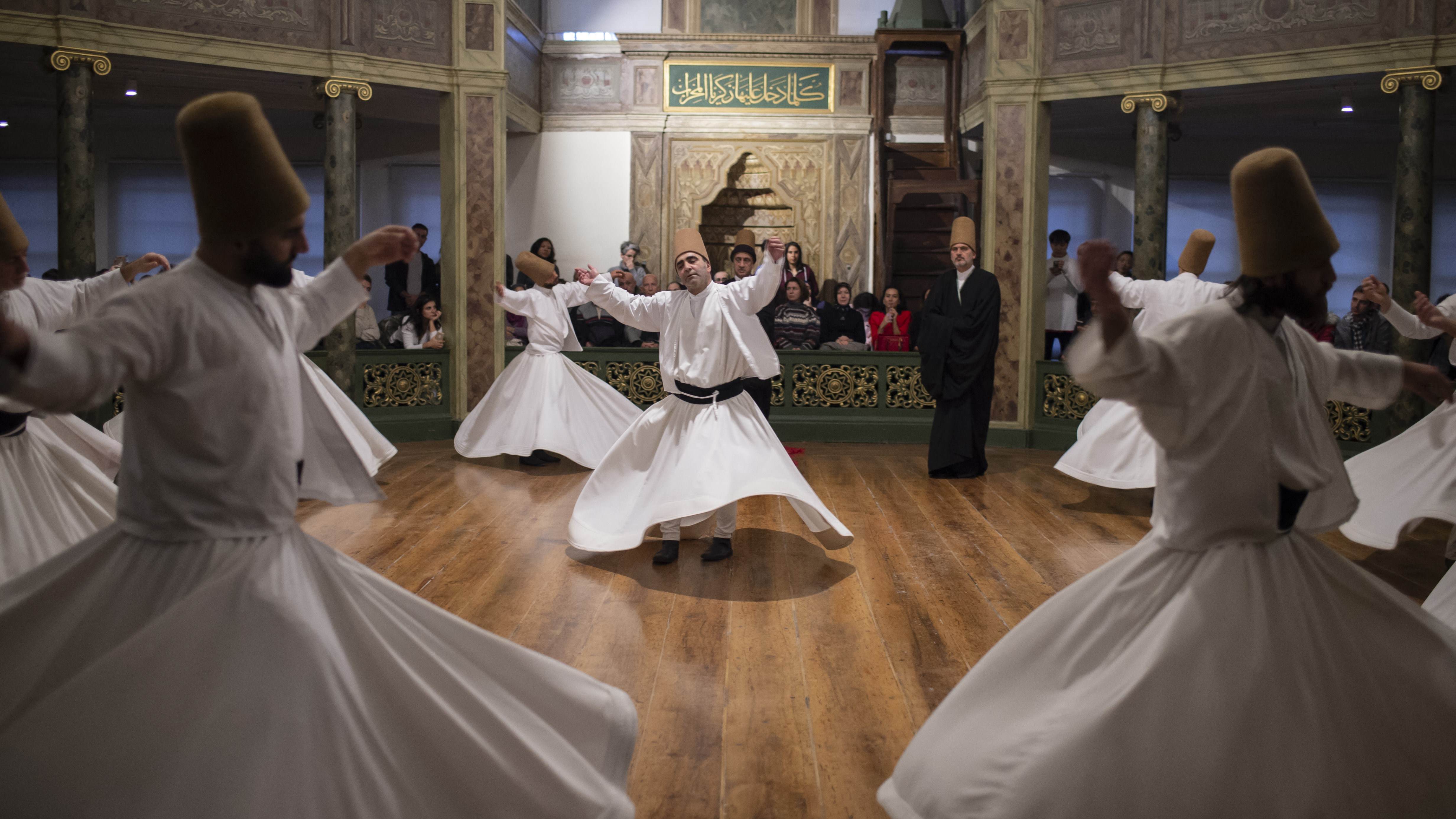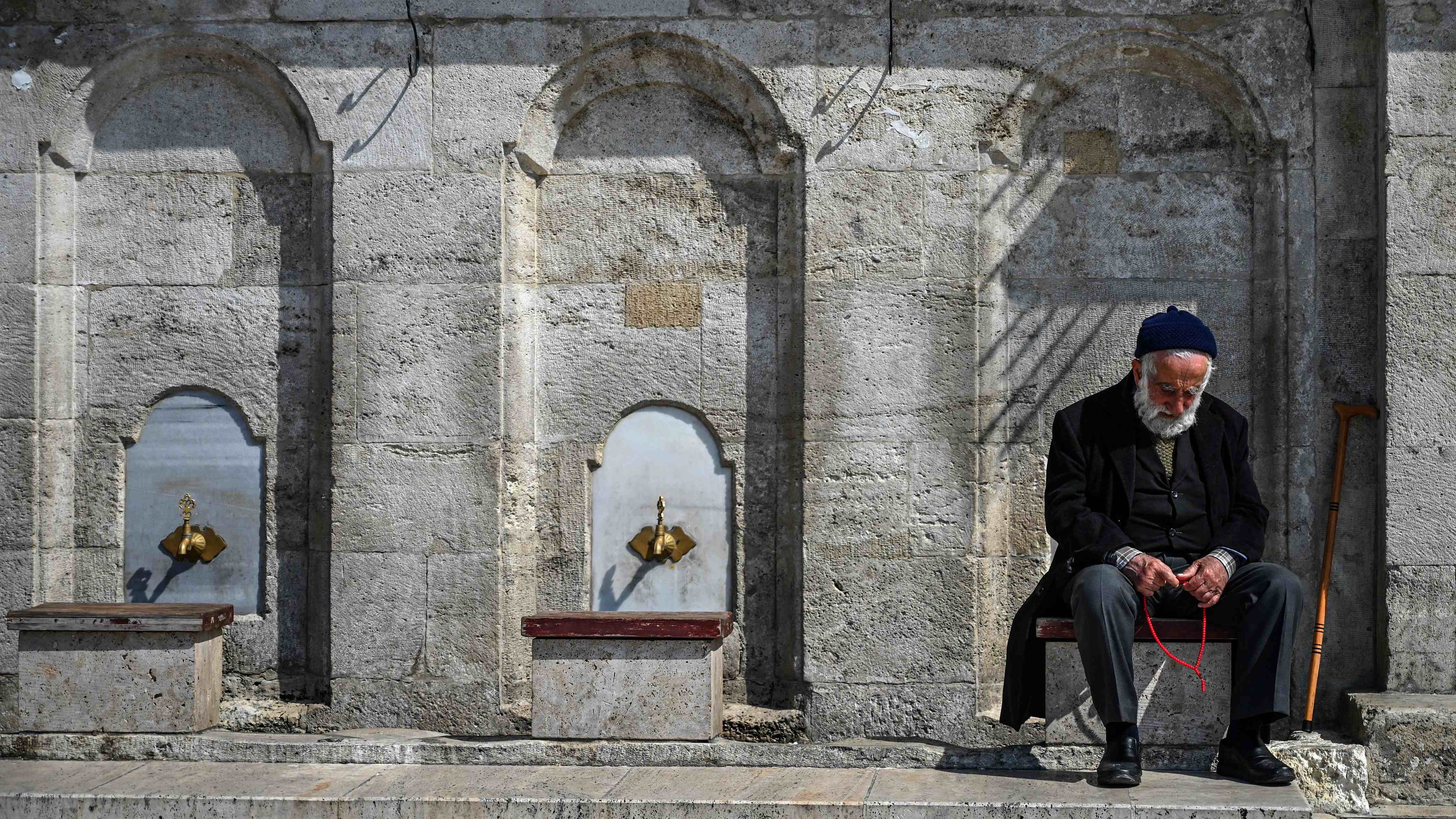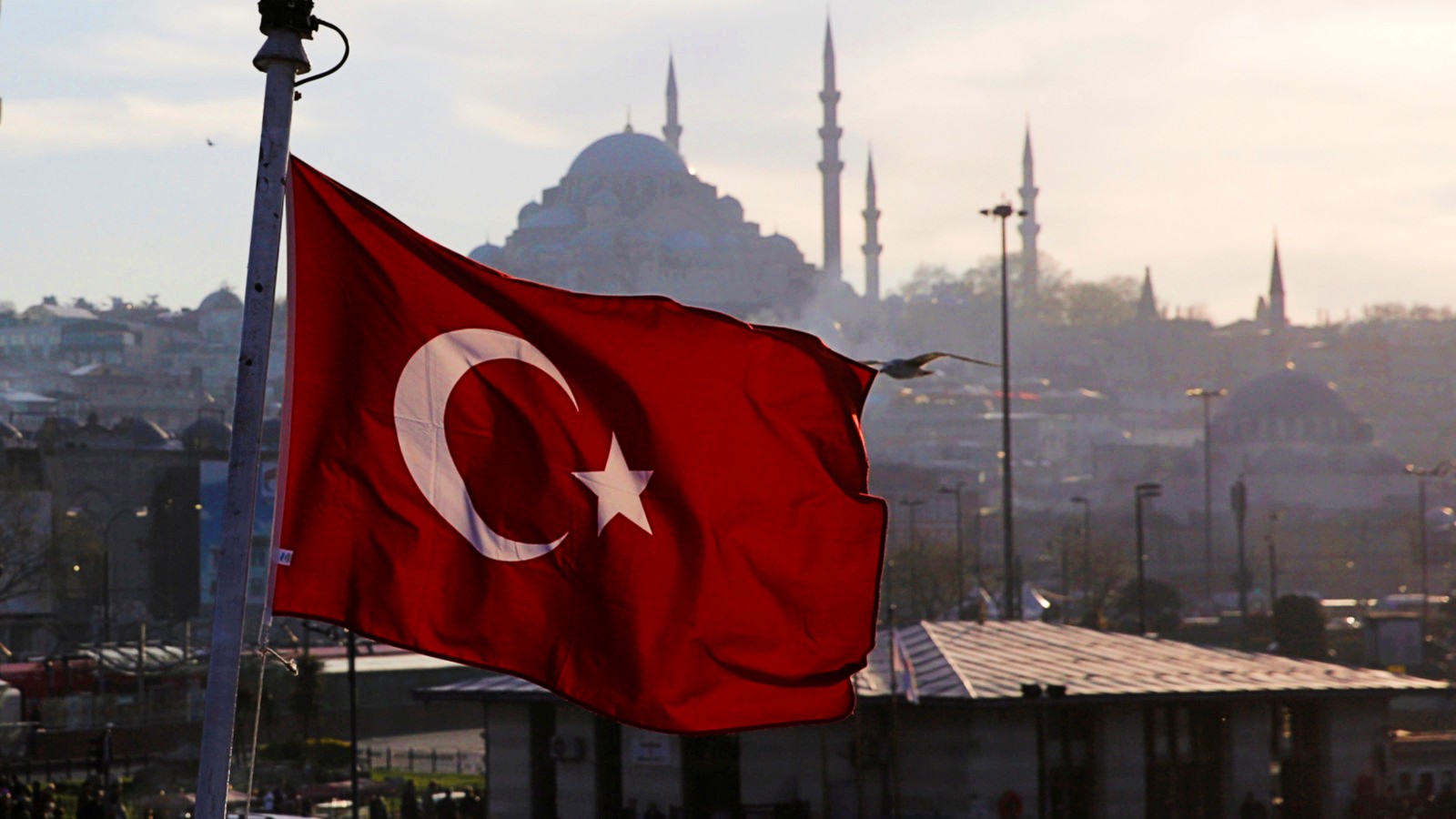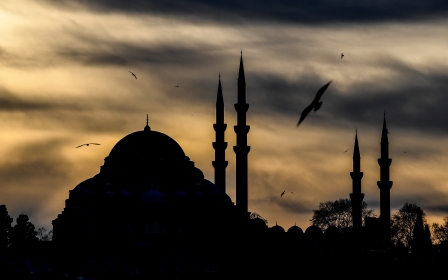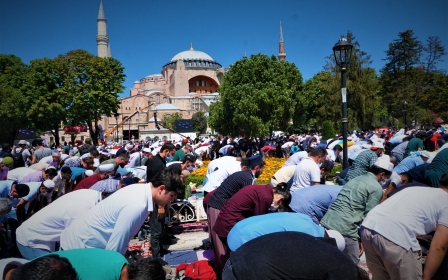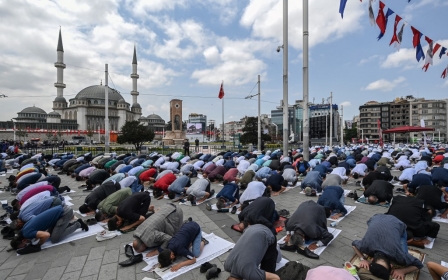Between modernity and tradition: Why Turkey appeals to western Muslims and students of Islam
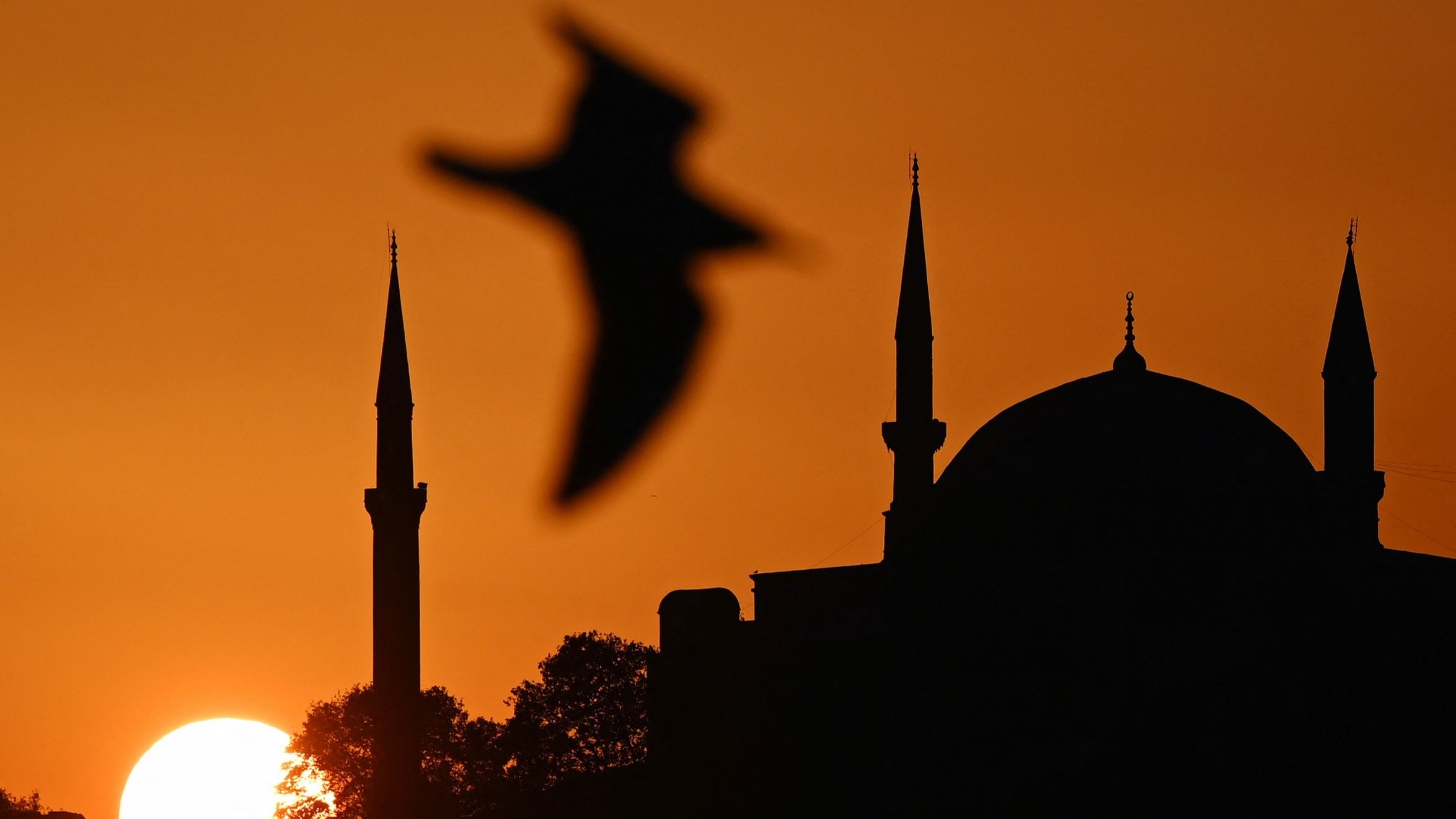
In Istanbul's Zeytinburnu district resides a cluster of cemeteries, Sufi lodges and mosques that hold deep historical importance within the city.
Within these grounds, gravestones engraved in Ottoman Turkish silently venerate both regular citizens, as well as revered Islamic scholars and Sufi sheikhs.
Amid this historic tapestry stands the Yenikapi Mevlevihanesi, formerly a lodge for the Mevlevi Sufi order, which was founded by followers of the famed Sufi poet Rumi.
From 1597 to 1925, the institution played a pivotal role in nurturing the spiritual and intellectual journey of Ottoman Istanbul's Sufi faithful.
However, with the arrival of the Republican era, the Ataturk government, worried about the prospect of Sufi rebellion against the emerging secular order, proscribed the religious orders and shut down their lodges.
New MEE newsletter: Jerusalem Dispatch
Sign up to get the latest insights and analysis on Israel-Palestine, alongside Turkey Unpacked and other MEE newsletters
Today, the Yenikapi Mevlevihanesi has found renewed purpose housing Fatih Sultan Mehmet University, as well as a renewed link to its Sufi past.
During the summer months, the "semahane" (where the dervishes used to whirl) is filled with more conversations in English and Arabic than in Turkish.
This shift is due to the summer schools organised by Islamic scholars from various countries, including Syria, Yemen, the UK and elsewhere.
Many of the participants in these courses come from western nations and chose this setting to deepen their understanding of Islam.
'No better place to study'
While many students are in Turkey temporarily, the organisers, mostly westerners, have made "hijra" to Turkey. The term "hijra" means relocating from a non-Islamic place to an Islamic environment with the aim of practising Islam more genuinely. One that makes the move is known as a "muhajir".
In the semahane, scholars give lectures on Islamic studies, covering subjects such as fiqh (Islamic jurisprudence) or tafsir (exegesis of the Quran).
Zoubair Sajeed and his wife Aisha, from Birmingham in the UK, say that Istanbul provides an atmosphere for studying Islam that their own country cannot provide.
"Alhamdulillah [Thank God], we are here, together with our brothers and sisters. There's no place better than Istanbul to spend the summer," Zoubair says.
"We have the opportunity to study Islam and deepen our understanding of our religion in this historically significant and sacred place, guided by scholars who have devoted their lives to teaching."
At the Yenikapi Mevlevihanesi, the programmes are arranged by Darul Fuqaha, and participation in the seminars is entirely free.
The Darul Fuqaha programme involves Islamic scholars with expertise on different subjects, coming to Turkey in summer from different parts of the world, including Lebanon, the UK and Egypt.
The organisation offers classes to over 100 students, delivering ijaza, or certification, in a topic at the end.
To qualify, interested individuals only need to complete a straightforward form but the majority of sessions are conducted in Arabic, so attendees are expected to possess a prior understanding of the language.
Indeed, other Muslim-majority countries like Egypt or Jordan also provide similar classes and their institutions attract many Muslims from the West as well. However, Turkey has a unique appeal in its offerings.
"Besides the classes, there is an unprecedentedly rich history here," Zoubair adds.
"Also, Turkey is a modern and developed country with its banking system, communication system, fast internet connection and well-linked transportation system.
"You know, you don't feel like you are in the middle of nowhere but at the heart of a developed country."
Western comforts
This was a theme that came up frequently in conversations with students in Turkey. A relatively developed society, with the comforts and many political freedoms of a western country, in addition to an Islamic character, all make the country an ideal choice for western students of Islam.
Muhammad Tahiri, a Macedonian who has been living in Turkey for nearly a decade and heads a community consisting of western Muslims living in Turkey, explains that Islamic diversity and modernity were the big draws of studying in Istanbul.
"People don't label each other in Turkey as Salafi or Sufi. Such polarisation, which we see more often in other Muslim countries like Egypt or Saudi Arabia, is much less prevalent here."
“If someone comes from, let's say, the US, they can hear the adhan in the street and then go shopping in a mall with all brands at their disposal," he adds.
"Similarly, they can easily access the internet or mobile applications without any barriers or police surveillance, unlike in some other places where there may be mukhabarat [intelligence service].
'If someone comes from the US, they can hear the adhan in the street and then go shopping with all brands at their disposal'
- Muhammad Tahiri, Macedonian living in Istanbul
"Besides, local people are charming, welcoming and helpful."
Omer Faruk Yeni, an arts director who has organised similar programmes in Istanbul and is familiar with the influx of western Muslims in Turkey, asserts that these classes also foster a sense of ummah, or Islamic community.
Yeni elaborates: "They feel like they are in the Muslim world, with Muslims from different ethnic backgrounds, speaking various languages, but gathered with the same goal: to learn Islam better."
In Turkey, students have the opportunity to meet co-religionists from other Muslim-majority countries, and many of the classes are attended by people from Central Asian, Balkan or East Asian countries.
Darul Fuqaha isn't the only institution offering classes. A number of other organisations use Istanbul as a location for Islamic courses, each with distinct objectives, according to Yeni.
"Some work like a charity and try to raise donations, some make a profit out of these courses and some are solely motivated by religious purposes," he explains.
Making 'hijra'
Turkey holds appeal not only for these courses but also for long-term living, often referred to in the Islamic context as hijra.
A multitude of online resources, including videos, blogs and podcasts, offer insight into life in Turkey and guidance on visa procedures. Moreover, several companies offer housing rental services and aid with the registration process for residency permissions.
Abdulbasit Moussa moved to Turkey four years ago for a new life after growing up and studying in Canada. His main reason was to live in a society more welcoming of Muslims, as he says "Canada never really felt like home".
Referring to the rise in anti-Muslim sentiment in the past two decades, Moussa adds that in Turkey he and others like him feel more welcome.
"In the aftermath of the 9/11 attacks, things changed so rapidly, and the Muslim identity became a bigger problem. I was passing through Turkey, and a relative of mine called me and said if I was in Istanbul, I had to visit the district of Fatih."
Fatih is an area in Istanbul known for its conservatism and is home to several religious communities, including Sufis.
When he arrived in the neighbourhood, it was love at first sight, Moussa explains: "People here choose to practise Islam. They are not forced to do so. Some parts of Turkish society are eager to preserve their Islamic identity and therefore understand the reason for leaving Canada for a Muslim country."
Moussa learned Arabic from teachers in Syria and continued studying Islam with different scholars. These days, he's helping set up summer schools himself.
He thinks that more Arab scholars from places like Yemen, Syria and Egypt coming to Turkey has made more western Muslims interested in coming to Turkey to learn about Islam.
But he warns that there is a culture shock for some who arrive in the country with unrealistic expectations of what life will be like.
"Some western Muslims are disappointed upon their arrival in Turkey, as they imagine it as a purely Islamic country. In fact, what they imagine as an Islamic country doesn't exist anywhere. Turkey accommodates fundamentally differing views and practices on Islam.
"You can see another Turkey in Taksim Square, where people hang out and drink. Then you can see another one in Fatih, with all madrasas and Sufi dhikr ceremonies."
"Western Muslims are diverse. Some are more conservative, some are more progressive. Istanbul offers what people look for in any way."
Academic Rose Aslan believes that more conservative Muslims come to Turkey to live in an Islamic environment, provide a religious education for their children, and because Western values don't correspond to their morals.
She agrees that some newcomers are confused and disappointed with Turkey's secular structure.
"Some of them imagine an Ottoman-era Turkey as they barely know about Turkey's past but watch TV series on its history.
"Still, Istanbul is a hot place for Western Muslims as they are frustrated with the education system in the West and longing for an Islamic community."
"Obviously, simple things like the recitation of adhan or Friday sermons make Western Muslims feel like they are in a Muslim country."
This article is available in French on Middle East Eye French edition.
Middle East Eye delivers independent and unrivalled coverage and analysis of the Middle East, North Africa and beyond. To learn more about republishing this content and the associated fees, please fill out this form. More about MEE can be found here.


